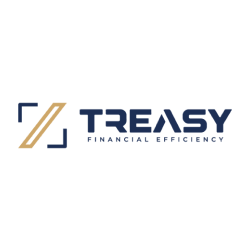Modernising Infrastructure with Kubernetes
Improving software delivery speed, stability, and scalability through isolated environments and automated pipelines.
The client was running development, testing, and production environments on a single on-premise virtual machine using Docker Compose. This setup caused resource contention, scalability issues, and operational risk. Bion implemented isolated Kubernetes environments, improved CI/CD pipelines, and optimised database configurations. The result was a more secure, scalable, and efficient infrastructure that enabled faster releases and greater stability.
.jpeg)
Client Overview
Treasy is a SaaS company providing cloud-based treasury solutions for financial institutions and banks. The platform enables full treasury front-office, mid-office, and back-office transactions, operations, and reporting. As its product matured and its customer base expanded, Treasy needed a more resilient and scalable development infrastructure to support fast iteration, strong security, and environment-specific testing.

Challenge
The client faced increasing limitations with a single shared environment, impacting development speed, scalability, and system reliability. Key challenges included:
Lack of Environment Isolation
All environments ran within a single VM using Docker Compose, causing resource contention and security concerns.
Limited Scalability and Resilience
The infrastructure was not built to scale or handle fault-tolerant workloads, limiting application growth and stability.
Inefficient CI/CD Pipelines
Manually configured pipelines lacked automation and slowed down deployment cycles and testing.
Complex Database and Resource Management
Shared configurations and infrastructure hindered performance and made it difficult to manage data and resources across environments.
Solution
Bion introduced a modular, secure, and scalable on-premises Kubernetes environment along with enhanced CI/CD capabilities.
Environment Segregation
- Dedicated Kubernetes Clusters: Deployed isolated clusters for development, testing, and production to reduce cross-environment risks.
- Custom Resource Quotas and Access Controls: Configured each cluster with tailored permissions and quotas, improving both performance and security.
Infrastructure Optimisation
- On-Prem Kubernetes via Kubespray: Set up a scalable, production-ready Kubernetes infrastructure following best practices.
- Improved Database Configurations: Optimised database setups to ensure high availability and consistent performance across all clusters.
CI/CD Pipeline Enhancement
- Azure DevOps Pipelines: Introduced automated CI/CD pipelines using Azure DevOps Server, reducing build and deployment time.
- Deployment Automation: Integrated tools for automated rollouts and rollbacks, enhancing delivery speed and reliability.
Knowledge Transfer and Documentation
- Hands-on Training: Delivered in-depth training and documentation to enable the internal team to manage and extend the infrastructure independently.
Results
Improved Stability and Security
Isolated environments and tailored access controls reduced risks, resulting in a more secure and stable production setup.
Faster Deployment Cycles
CI/CD enhancements reduced deployment times by 40%, enabling quicker release cycles and faster time-to-market.
Scalable Infrastructure Foundation
The resilient Kubernetes setup supported future application growth, meeting the client’s scalability and performance needs.
Boosted Development Efficiency
Streamlined workflows and automation freed up engineering resources, allowing teams to focus on building new features.
Technology Stack
To support a scalable and secure development environment, the following technologies were implemented across infrastructure, deployment, and automation layers.
- Infrastructure: On-Premise Virtual Machines, Kubernetes (via Kubespray)
- Package Management: Helm
- CI/CD & Version Control: Azure DevOps Server, Azure DevOps Repositories
Ready to transform your cloud infrastructure? Book a consultation with our experts.

